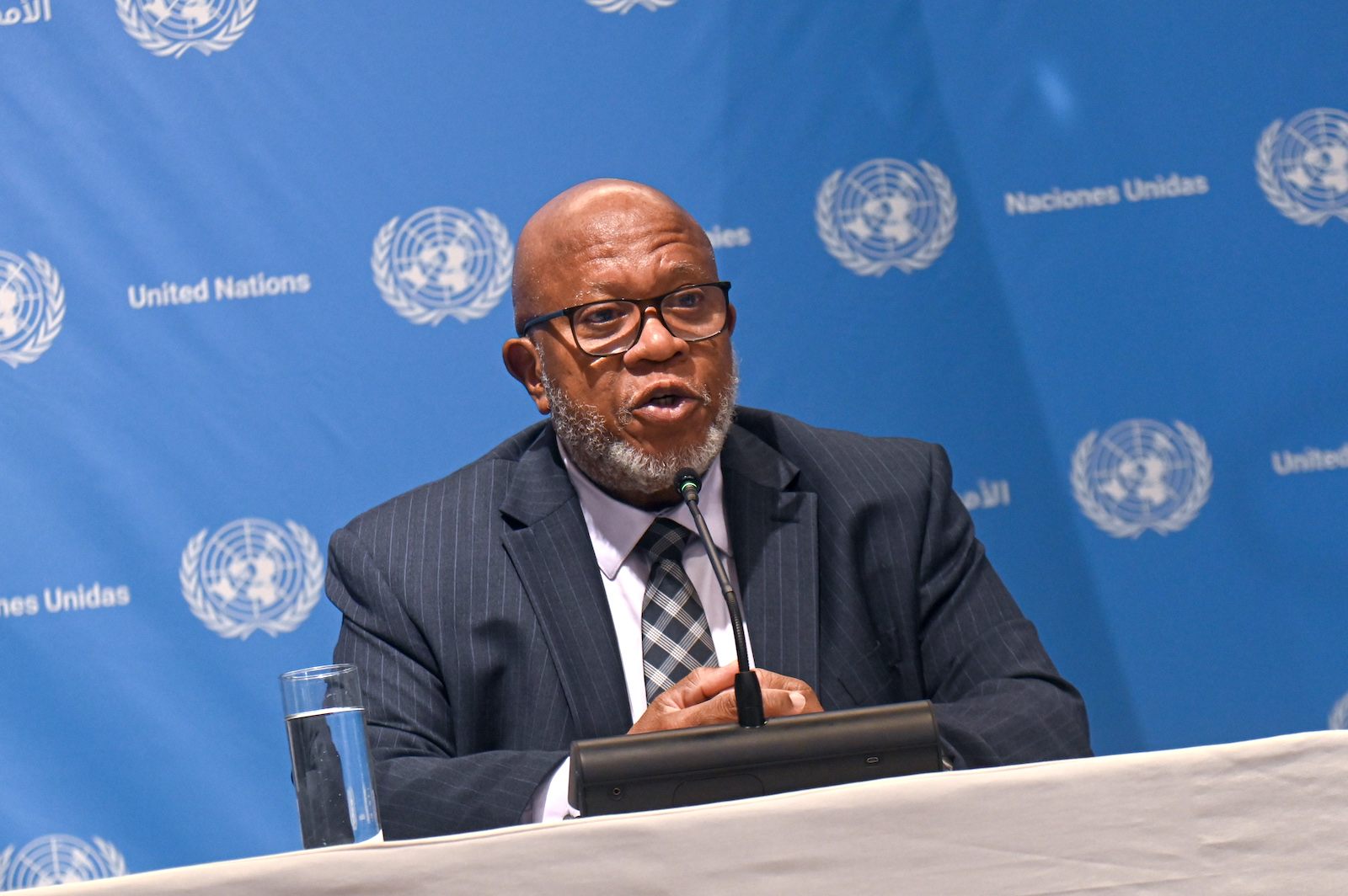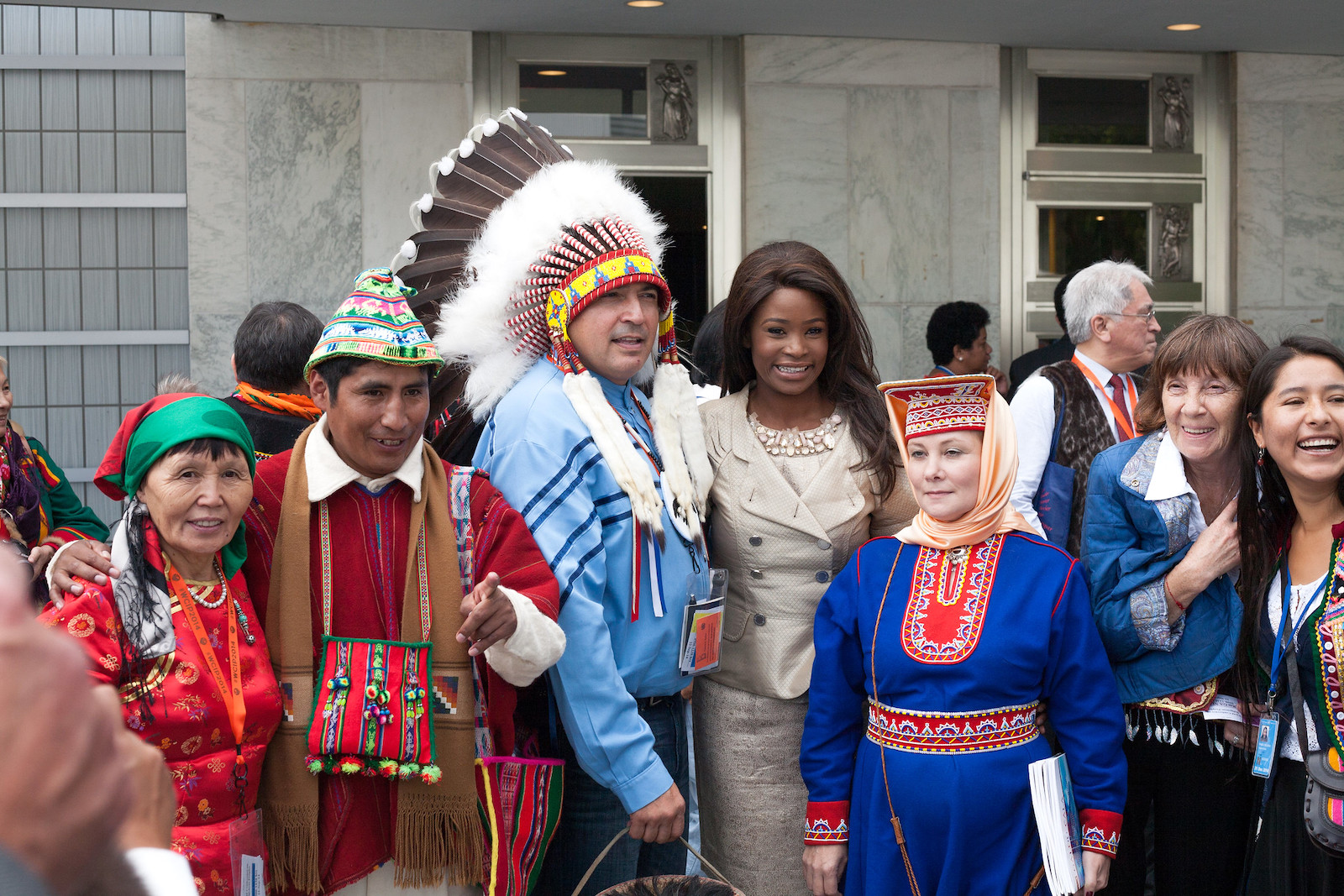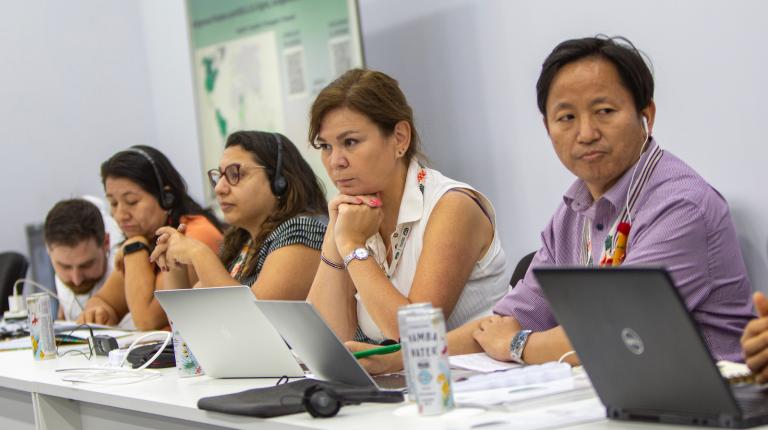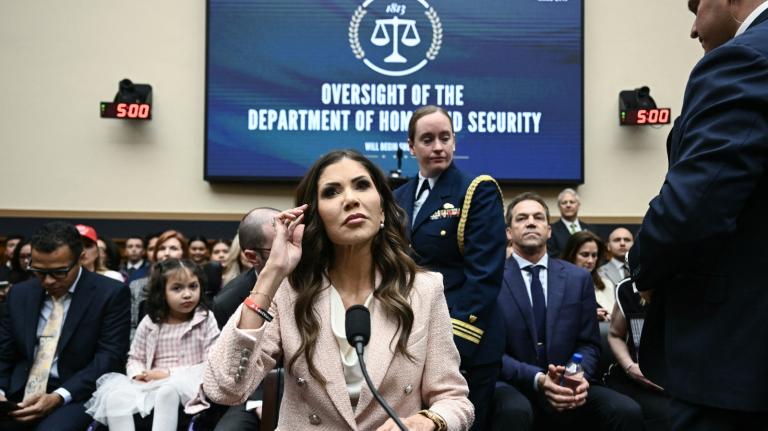This story is published as part of the Global Indigenous Affairs Desk, an Indigenous-led collaboration between Grist, High Country News, ICT, Mongabay, Native News Online, and APTN.
In December, Catherine Murupaenga-Ikenn used a power tool to erase the words on a museum display of the Treaty of Waitangi, an 1840 document that asserted British sovereignty over Aotearoa, also known as New Zealand.
For years, many Māori, like Murupaenga-Ikenn, had criticized their national museum for displaying the English-language agreement that their ancestors did not endorse, wrongly suggesting the Māori people had agreed to relinquish their sovereignty. Activists had spent years waiting for the museum to change the display; when nothing happened, they took matters into their own hands. Her case is now in court.
Murupaenga-Ikenn is now in New York City this week, attending the U.N. Permanent Forum on Indigenous Issues, the largest annual global gathering of Indigenous advocates and leaders. There, she spoke on the United Nations General Assembly floor on Wednesday, drawing a connection between the disillusionment her people feel with their state government and the frustration Indigenous people feel with the United Nations as a whole.
A decade ago, global leaders stood in that same room and agreed to respect and promote the rights of Indigenous peoples. At the World Conference of Indigenous Peoples in 2014, they negotiated a 40-paragraph agreement — known as an outcome document — loaded with promises like providing equal access to health care for Native peoples; respecting their contributions to ecosystem management; and working with Indigenous peoples to address the effects of extractive industries. To date, little has been accomplished, and now many like Murupaenga-Ikenn want the United Nations to urgently course-correct.
“Ten years on from the adoption of the outcome document, what I see is the U.N. is suffering a crisis of Indigenous peoples’ mistrust,” Murupaenga-Ikenn said.
Wednesday’s meeting, where Murupaenga-Ikenn spoke, was particularly important because it featured Dennis Francis, the president of the General Assembly, a high-ranking official of the United Nations, second only to the secretary-general, António Guterres.

But unlike the conference in 2014, this conversation focused heavily on the climate crisis. The original outcome document features the phrase “climate change” only once.
“It is thanks to Indigenous peoples, as guardians as 80 percent of the world’s biodiversity, that the sophisticated traditional knowledge and practices they employ, that we have seen gains in the conservation and sustainable use of our increasingly threatened biodiversity,” Francis said in his remarks to attendees. “We must harness the potential of Indigenous knowledge and innovations to mitigate the effects of climate change.”
A decade ago, the world hadn’t yet experienced month after month of record-shattering heat. Global leaders hadn’t met in Paris to sign international agreements to prevent catastrophic warming. Far fewer people drove electric cars and relied upon renewable energy. The European Union and the U.S. had yet to sign their landmark climate laws.
Now, the United Nations’ weather agency is warning that the world is close to surpassing 1.5 degrees of warming. Scientists are proving that climate change is already exacerbating extreme weather events like heavy rainfall. And leaders say now is more important than ever for U.N. member states to take seriously both the concerns of Indigenous peoples and the potential for their traditional knowledge and practices to provide much-needed solutions.
“So many brothers and sisters have come to this meeting year after year to call to humanity, to states, to multinationals, to ask them to comply with these agreements,” said Leonidas Iza Salazar, a Kichwa-Panzaleo activist from Ecuador, who spoke on behalf of Central and South America and the Caribbean region at Wednesday’s meeting.
In the 2014 outcome document, such promises include recognizing Indigenous peoples’ knowledge when creating national climate change response plans and protecting Indigenous rights, which include “free, prior and informed consent” to projects on their land. This would mean giving Indigenous peoples the opportunity to agree to energy developments like pipelines and lithium mining on their land before such projects are underway.
“However after 10 years of having established these mechanisms and having this declaration, the states — rather than creating conditions to meet the commitments they have made to the Indigenous peoples of the world — they have forged ahead with economic policies, mining, extraction, despoiling Mother Earth without limits,” Salazar said. “All of that has brought with that terrible consequences.”
Throughout Wednesday’s meeting, Indigenous peoples took turns sharing their frustration and disappointment with the lack of follow through from state governments, whose officials intermittently stood up to describe their progress and restate their commitments to Native peoples and nations.
Some state governments were more willing to embrace reform than others: A representative from Colombia said the country would support enhanced participation of Indigenous peoples in the U.N. system through the creation of a separate status for them. Right now, Indigenous nations are lumped in with non-governmental organizations in the U.N. system like advocacy groups, and can’t serve on key committees where important conversations happen between U.N. member states.
Many Indigenous advocates spoke up about the need for such enhanced participation in United Nations processes, which states promised to consider in the outcome document. Indigenous peoples’ status at the U.N. still hasn’t changed in the last decade.
Ghazali Ohorella, an Alifuru Indigenous rights advocate from the Maluku Islands in Indonesia, spoke on behalf of the Pacific region and was one of several advocates who urged Francis, president of the General Assembly, to schedule a high-level meeting in 2027 to commemorate the 20th anniversary of the signing of the U.N. Declaration on the Rights of Indigenous Peoples. Those meetings, Ohorella said, are a key part of Indigenous advocates’ efforts to hold states accountable for their promises. And while there’s no way to actually hold states accountable, a major event can help Indigenous advocates shine a light on failures, highlight any successes and ensure their concerns are not forgotten.
“The thing is, with Indigenous peoples, because we’re like a mighty mouse fighting an 800-pound gorilla, you need to keep the pressure on,” Ohorella said. “What we’re here to do is definitely to challenge the status quo and make sure that we’re not just participating in the system, we’re changing it.”
That optimism resonates with Murupaenga-Ikenn from Aotearoa. Murupaenga-Ikenn used to attend the Permanent Forum frequently but then got disillusioned by the lack of progress and stopped attending.
But recently she decided it was time to come back. A new right-wing government elected last fall in Aotearoa pledged to roll back many of the progressive Indigenous policies that Māori peoples spent decades fighting for. Already, the new government abolished the Māori health agency, despite entrenched health disparities, is minimizing the use of the Māori language, and exploring how to withdraw the country’s support of the U.N. Declaration on the Rights of Indigenous Peoples. Thousands have taken to the streets to protest the changes.
Murupaenga-Ikenn feels like this is the time to speak out again, and to find allies internationally. Yet halfway through the first week of the Permanent Forum, she’s already frustrated with how repetitive the gathering has been as Indigenous advocates ask state governments over and over to respect their rights.
“You just want to keep on doing this for another 100 years?” she said. “Good on you, but not me. And certainly not our young people. Because there will be nothing left, nothing left to salvage if we keep on doing this, and only this.”




